Niche cosmetics markets in China have been rapidly growing due to the increasing demand for sustainable, natural, and ethical beauty products. The rapid growth is fueled by people’s heightened interest in quality ingredients and alignment with their values.
As Asia’s personal care industry continues to transform, it’s essential for businesses interested in breaking into these niche markets to understand the cultural preferences of Chinese consumers as well as the branding and positioning strategies that work best.
Key Takeaways
- Niche cosmetics markets in China, such as vegan, halal, and organic beauty products, are rapidly growing due to increasing demand for sustainable, natural, and ethical products.
- With the rising middle class in China seeking out health and wellness with a preference towards clean beauty products; understanding brand strategy is important when breaking into these niche markets.
- The vegan makeup market is projected to grow at a CAGR of 6.5% between 2022 and 2027
- The halal cosmetics market is expected to reach a CAGR of 15.2% between 2021and 2031 providing significant opportunities for businesses looking to penetrate either or both markets
- Organic beauty Market growth is estimated at a CAGR of 10.5%, driven by consumer awareness of clean beauty and health concerns creating further business opportunities for interested parties.
Significance Of The Chinese Market
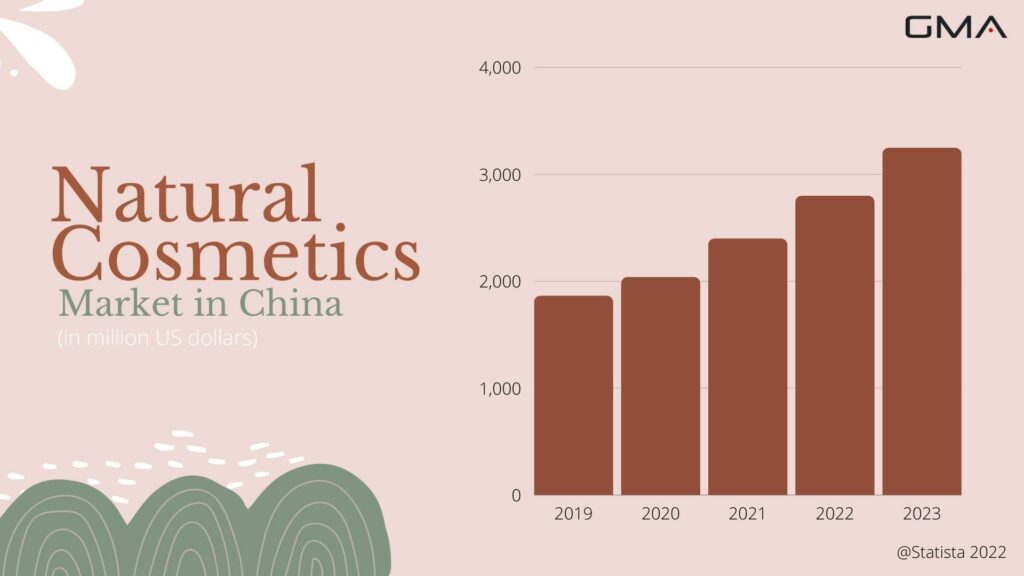
China is undeniably one of the largest and fastest-growing beauty industries globally, holding an impressive 29.6% share of the global skincare market.
In recent years, there has been a noticeable shift in consumer preferences within China toward ethical and sustainable beauty products. The “clean beauty” movement has gained traction, with buzzwords like cruelty-free, natural, vegan, green, and organic becoming more popular among Chinese consumers.
For instance, interest in natural beauty products such as vegan makeup or halal cosmetics has surged remarkably over time.
Understanding and adapting your beauty brand strategy for this unique audience can elevate your business above its competitors in both local and international contexts while positioning your company at the forefront of eco-friendly innovation in cosmetic design – ultimately solidifying your foothold on China’s burgeoning cosmetics scene.
The Vegan Makeup Market
The vegan makeup market in China is on the rise, with an estimated CAGR of 6.5% between 2022 and 2027 due to increasing demand for ethical and sustainable cosmetic products.
Let’s have a look at the current market size and forecast for this burgeoning industry.
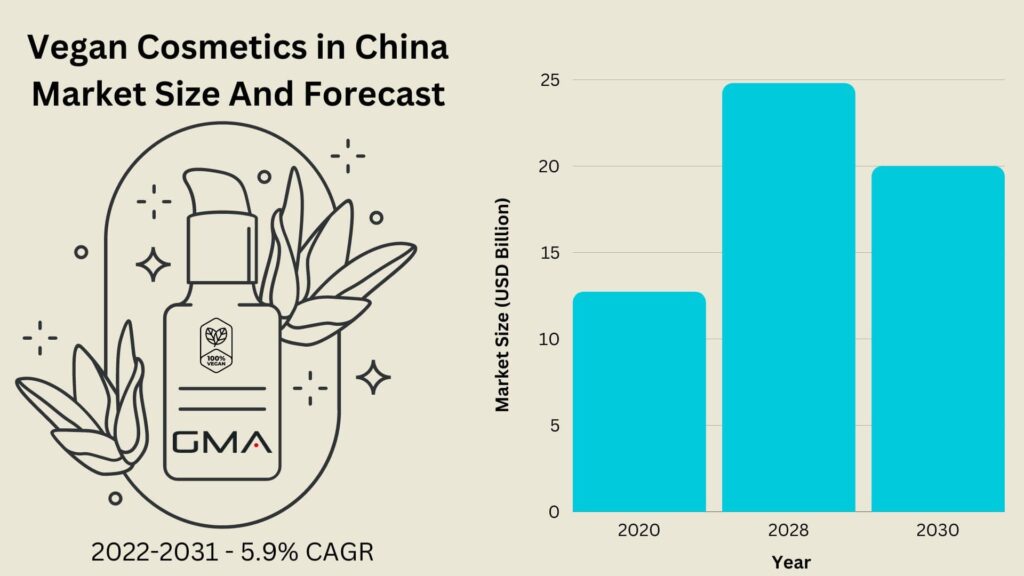
Vegan Makeup – Key Players And Products In China
- Key players: Some of the major players in China’s vegan makeup market include Aromatica, Inika Organic, and Dolled Up. These brands offer a range of vegan makeup products, from foundation and concealer to lipstick and eyeshadow.
- Product offerings: Vegan makeup products in China are available in a variety of formulations, including powder, cream, and liquid. They come in a range of shades for different skin tones and preferences. Common ingredients include plant-based oils and waxes, as well as natural pigments like beetroot extract.
- Consumer preferences: Chinese consumers are drawn to natural, organic ingredients and innovative packaging designs. They also value transparency around production processes and sustainability efforts.
Keeping these factors in mind can help marketing managers develop effective strategies for tapping into China’s growing niche cosmetics markets.
The Halal Cosmetics Market
The Halal beauty market in China is growing rapidly, with an estimated CAGR of 15.2% between 2021 and 2026. Here’s a snapshot of the current market size and future forecast for the Halal makeup industry:
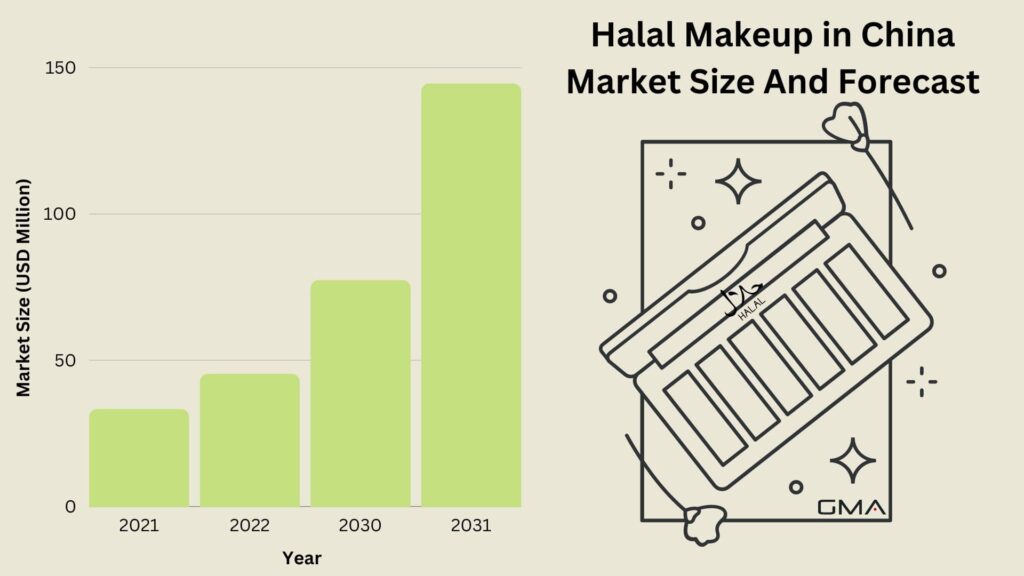
Halal Cosmetics – Key Players And Products In China
- Key players: in the halal cosmetics market in China include Amara Halal Cosmetics, which offers a range of skincare and makeup products that are free from alcohol and other forbidden ingredients. Iba Halal Care is another popular brand that specializes in halal-certified makeup products. In addition to these homegrown brands, international companies such as L’Oreal and Estee Lauder have also entered the Chinese halal cosmetics market with specialized product lines.
- Product offerings: Halal makeup products popular in China include halal lipsticks, eyeliners, foundations, and skincare products.
- Consumer preferences: These items are often marketed as “clean” or “natural” and appeal to consumers who prioritize health-consciousness in their purchasing decisions.
Overall, understanding the nuances of China’s niche cosmetics markets such as halal can help businesses tap into new consumer segments and succeed in this dynamic marketplace.
The Organic Beauty Market
The organic beauty market in China is experiencing significant growth and is estimated to reach a CAGR of 10.5% between 2021 and 2028, driven by increasing consumer awareness of clean beauty and health concerns. The following table provides an overview of the current market size and forecast for the organic cosmetics market:
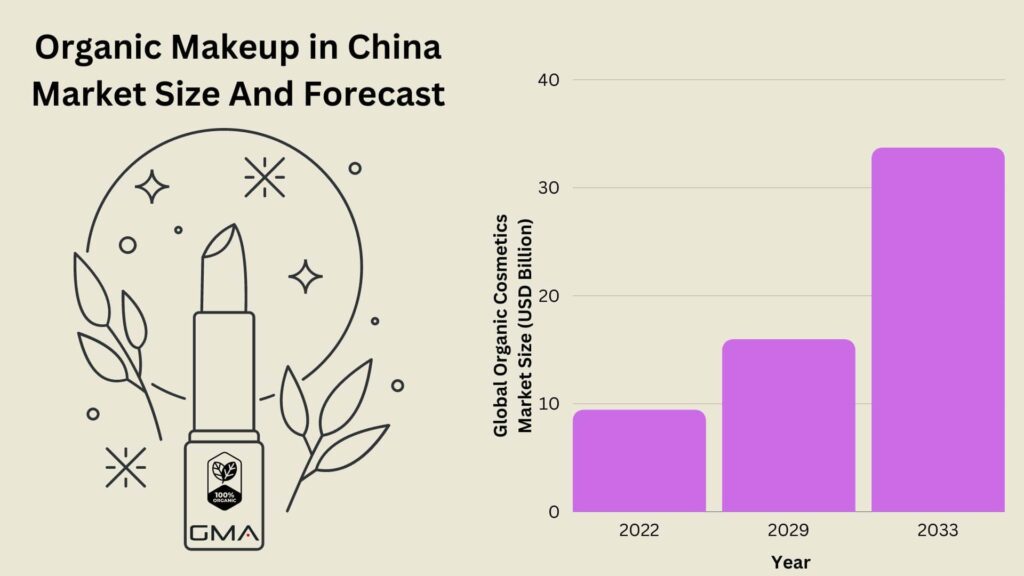
Organic Cosmetics – Key Players And Products In China
As a marketing manager, it’s important to know the key players and products in China’s organic cosmetics market. Here are some relevant facts:
- Key players: in this market include L’Oreal, Shanghai Jahwa United Co., Ltd, and Estée Lauder Companies Inc. Local Chinese brands like Inoherb, Pechoin, and Chando also have a significant presence in the organic cosmetics market.
- Product offerings: The most popular organic beauty products in China include skincare items such as facial cleansers, toners, and moisturizers.
- Consumer preferences: It’s worth noting that Chinese consumers prioritize efficacy when it comes to organic cosmetics. They want products that deliver results while still being gentle on their skin. Many of these products feature plant-based ingredients like rosehip oil, green tea extract, and bamboo charcoal.
Keep these trends in mind as you develop your marketing strategy to appeal to today’s eco-conscious consumer base.
Trends Driving The Growth Of Niche Cosmetics Markets In China
Consumers are becoming more conscious of their impact on the environment and seeking out products that reflect their values. This trend is particularly evident in niche cosmetics markets such as vegan, halal, and organic beauty.
Niche brands that prioritize sustainability and transparency are also gaining popularity among Chinese consumers. Studies show that over 60% of millennials in China are willing to pay more for eco-friendly brands, making it crucial for companies to incorporate environmentally friendly practices into their business models.
Moreover, consumer demand for high-quality ingredients ethically sourced from nature is driving growth in the natural, organic, and clean-label cosmetics markets in China.
As companies respond to these trends by incorporating healthier ingredients into their products, they can attract customers who prioritize health and eco-friendliness over cost or convenience.
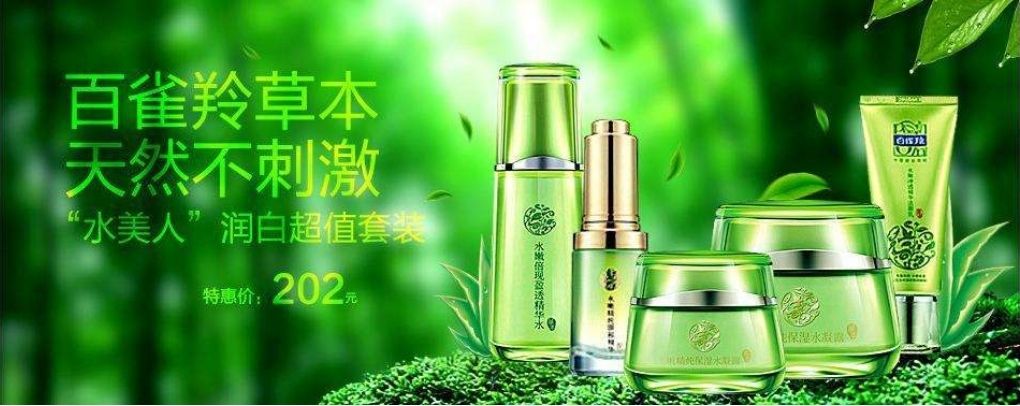
It’s worth noting that Chinese millennials and Gen Z have unique preferences when it comes to beauty. For instance, skincare solutions are more popular among younger Chinese consumers than makeup.
Moreover, male customers are beginning to show an interest in grooming products too. With the rise of online retail, more consumers are turning to platforms like Tmall, JD.com, and Taobao to purchase personal grooming products.
In addition to e-commerce, social media influencers have become an increasingly powerful force in shaping consumer behavior when it comes to cosmetics. Beauty trends spread quickly through platforms like WeChat and Weibo, making influencer marketing an effective way for foreign brands to reach their target audience.
By partnering with popular bloggers and celebrities who align with their brand ethos, companies can build trust and credibility with Chinese consumers.
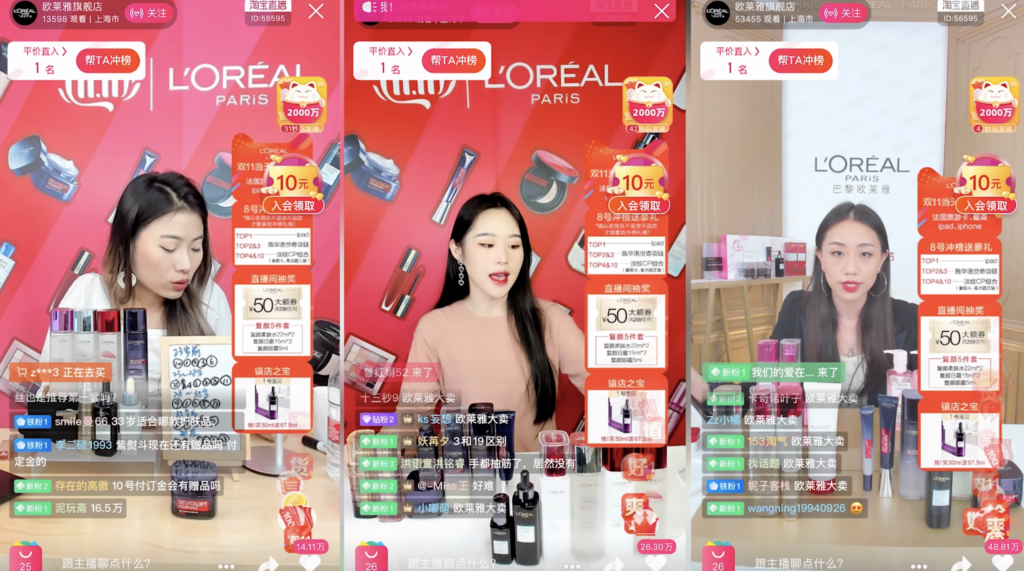
Key Takeaways For Businesses Interested In Entering China’s Niche Cosmetics Markets
Importance Of Understanding Local Consumers And Culture
International brands have an advantage in the growing natural care market as Chinese consumers trust them more than local cosmetic brands when it comes to green beauty products.
Additionally, trends such as rising demand for ethical and sustainable beauty products, growing consumer awareness of health and wellness, the influence of millennials and Gen Z, and the role of e-commerce and social media marketing must all be considered.
An example of this is L’Oreal Paris’ collaboration with T-Mall to launch its new vegan line “Botanicals Fresh Care” in China. The brand in China utilized Tmall’s data insights into what their customers want from vegan beauty products to create targeted marketing campaigns that resonated well with Chinese millennials who are increasingly looking for healthier choices in their everyday purchases.
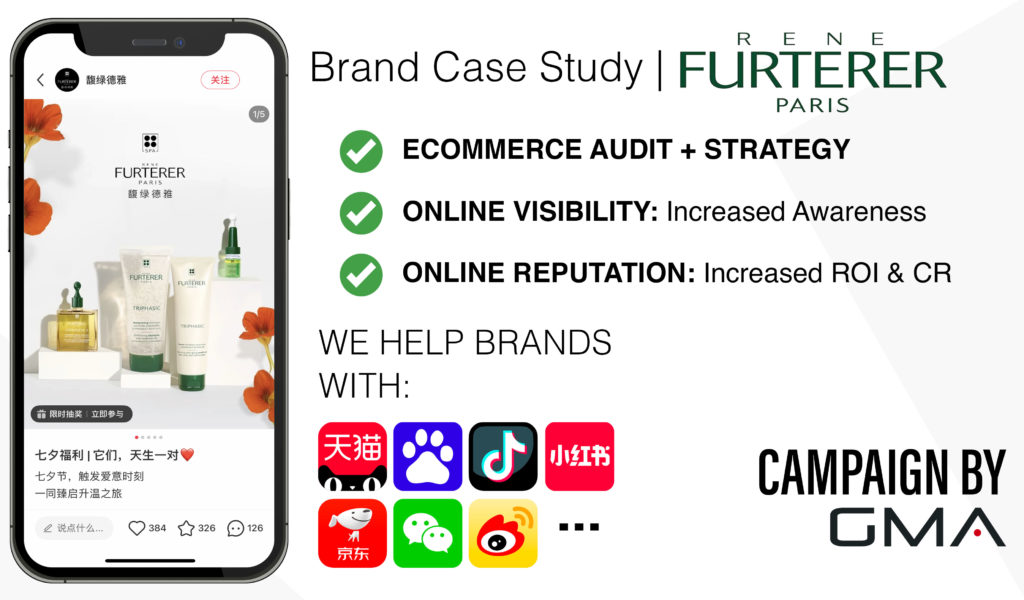
Necessity Of A Strong Online Presence
As online usage continues to increase in China, it is essential for businesses interested in entering the niche cosmetics markets to have a robust online presence. Chinese consumers are tech-savvy and often research products extensively before making a purchase.
In addition to an online presence, utilizing e-commerce platforms such as Alibaba’s Tmall or JD.com can also be beneficial in reaching a wider audience. Many consumers prefer shopping online due to convenience and access to product information, reviews, and promotions.
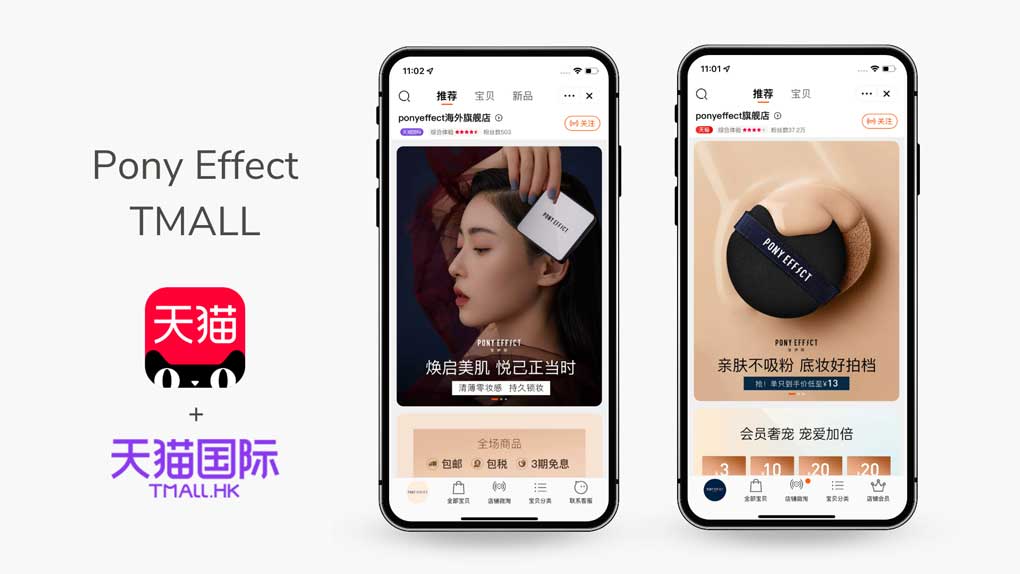
Branding And Positioning Strategies For Niche Markets
Utilizing social media platforms such as WeChat and Weibo can help raise brand awareness and engagement with local consumers.
It’s also crucial to have a clear understanding of the target market within each niche segment. Researching the preferences and behaviors of Chinese consumers in these areas will help develop effective branding strategies tailored to their needs.
For example, promoting eco-friendly practices or highlighting cruelty-free ingredients may appeal more strongly to younger generations who value sustainability efforts.
Strategic Positioning And Differentiation
With increasing competition in the market, businesses need to stand out by offering unique products or services. This can be achieved through understanding local consumers’ preferences and culture and working with local partners to tailor offerings accordingly.
Another way of differentiating oneself is by leveraging technological advancements such as virtual try-on technology or incorporating waterless beauty products into one’s offerings.
Businesses must also pay attention to animal testing regulations while ensuring their products meet cosmetic regulations in China. Effective branding strategies can help position the business positively in customers’ minds, making them more likely to purchase from you over competitors.
Partnerships And Collaborations With Local Players
Working with programmatic players who have already established a strong presence in that market can provide valuable insights into consumer behavior and preferences.
Successful examples of this strategy include L’Oréal’s partnership with Alibaba Group-owned platforms Tmall and Taobao, as well as Estée Lauder’s collaboration with popular Chinese beauty influencer Austin Li.
These partnerships have allowed these brands to gain access to new customers while adapting their strategies to align better with the needs and expectations of Chinese consumers.
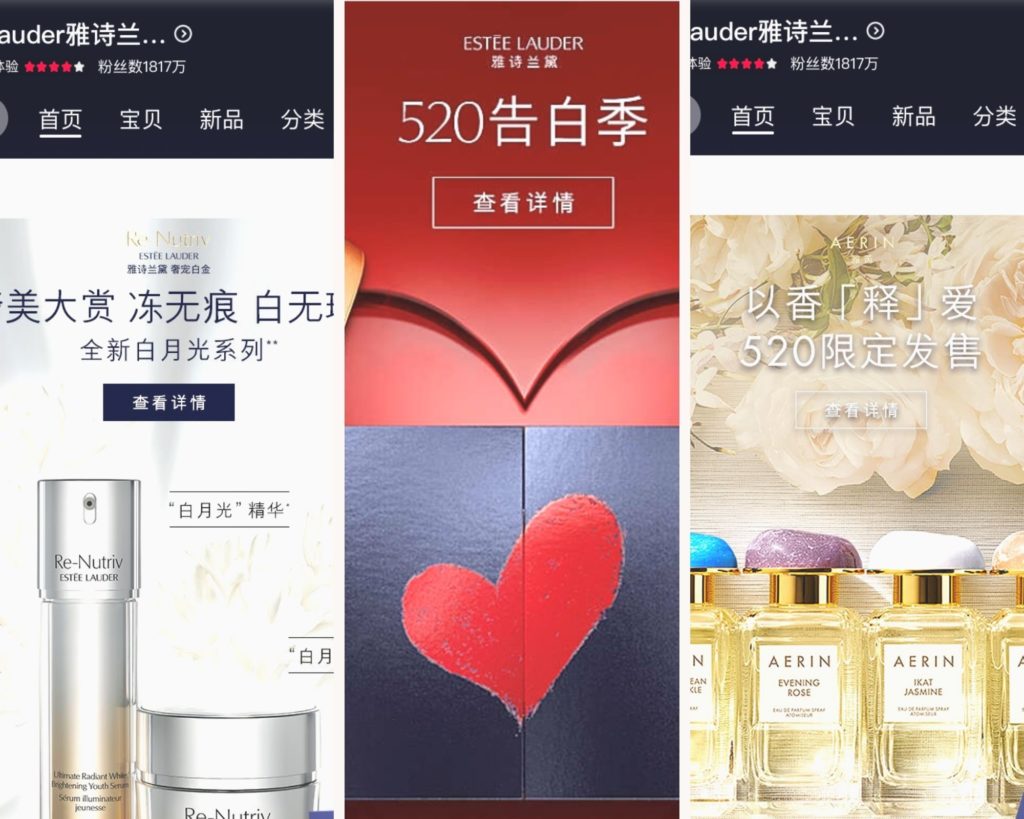
Case Studies
Lush Cosmetics
- The UK-based company has successfully positioned itself as a provider of handmade, environmentally conscious, and cruelty-free products.
- It opened its first store in China in 2019 and has since expanded to several cities.
The Body Shop
- Owned by Brazilian beauty conglomerate Natura &Co, The Body Shop has been selling ethical and sustainable products for over 40 years.
- It has over 500 stores in China and recently launched its first refill station.
Ren Skincare
- The London-based brand uses natural ingredients in its skincare formulations and offers eco-friendly packaging.
- It partnered with Alibaba’s Tmall Global to sell its products online in China.
Huda Beauty
- Founded by Iraqi-American beauty blogger Huda Kattan, the Dubai-based brand offers makeup products catering to diverse skin tones.
- It entered the Chinese market through Sephora before launching on Tmall Global.
Aesop
- The Australian skincare brand emphasizes botanical ingredients and minimalist design.
- It has a growing presence in China, with stores in major cities like Shanghai and Beijing.
These brands have successfully leveraged their unique value propositions and tailored their offerings for the Chinese market through strategic partnerships, localized branding strategies, and a strong online presence.
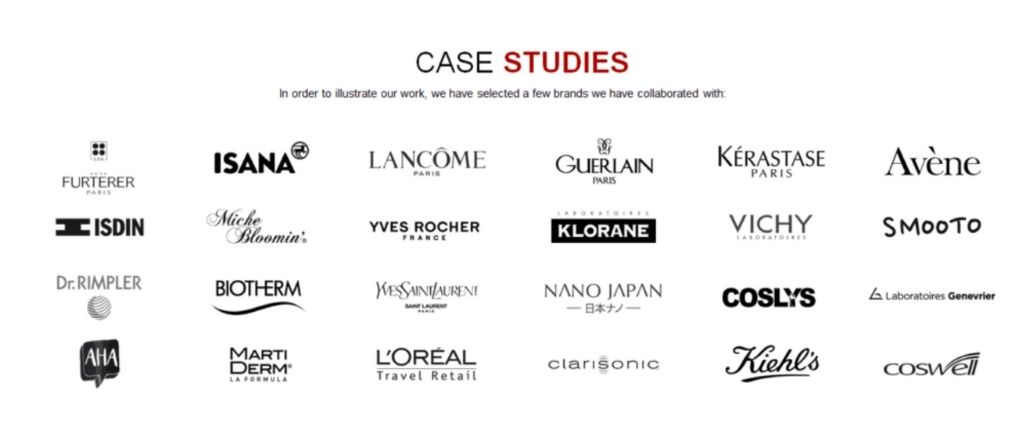
We Can Help You Sell Your Cosmetics in China!
The niche cosmetics markets in China offer a promising landscape for businesses seeking to tap into the growing demand for vegan, halal, and organic beauty products. As consumers in China become increasingly conscious of ethical choices and prioritize health and wellness, the potential for expansion in these markets is immense.
At our agency, we understand the importance of adapting to local consumer preferences, cultural nuances, and behavior patterns. We possess the knowledge and expertise to help your business navigate the complexities of the Chinese cosmetics market successfully. By leveraging our insights and understanding, we can assist you in developing a strong online presence and formulating branding and positioning strategies that set you apart from competitors.
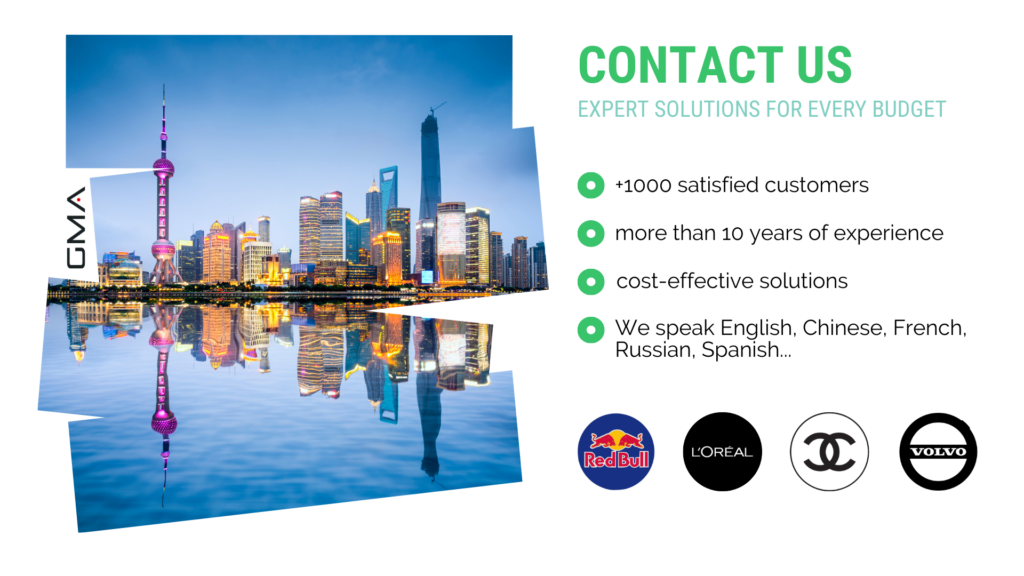
We are here to support you every step of the way and ensure that you capitalize on the opportunities presented by the niche cosmetics markets in China. If you have any questions, require further information, or would like to discuss how we can assist you, please do not hesitate to contact us. Our team is dedicated to helping you achieve your goals and thrive in these dynamic markets.
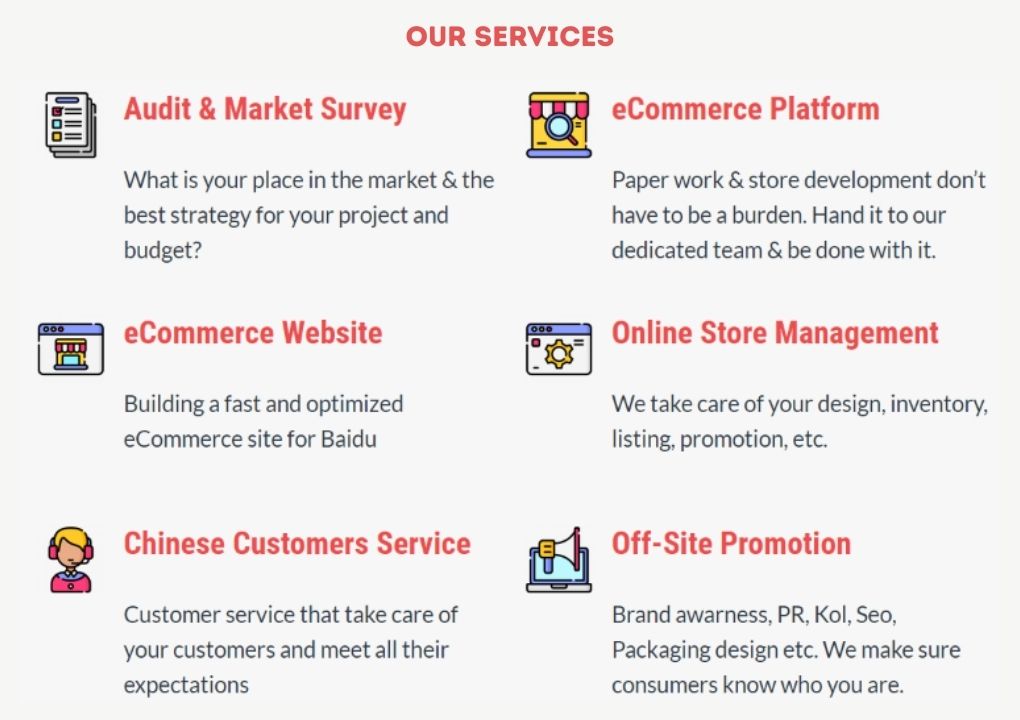

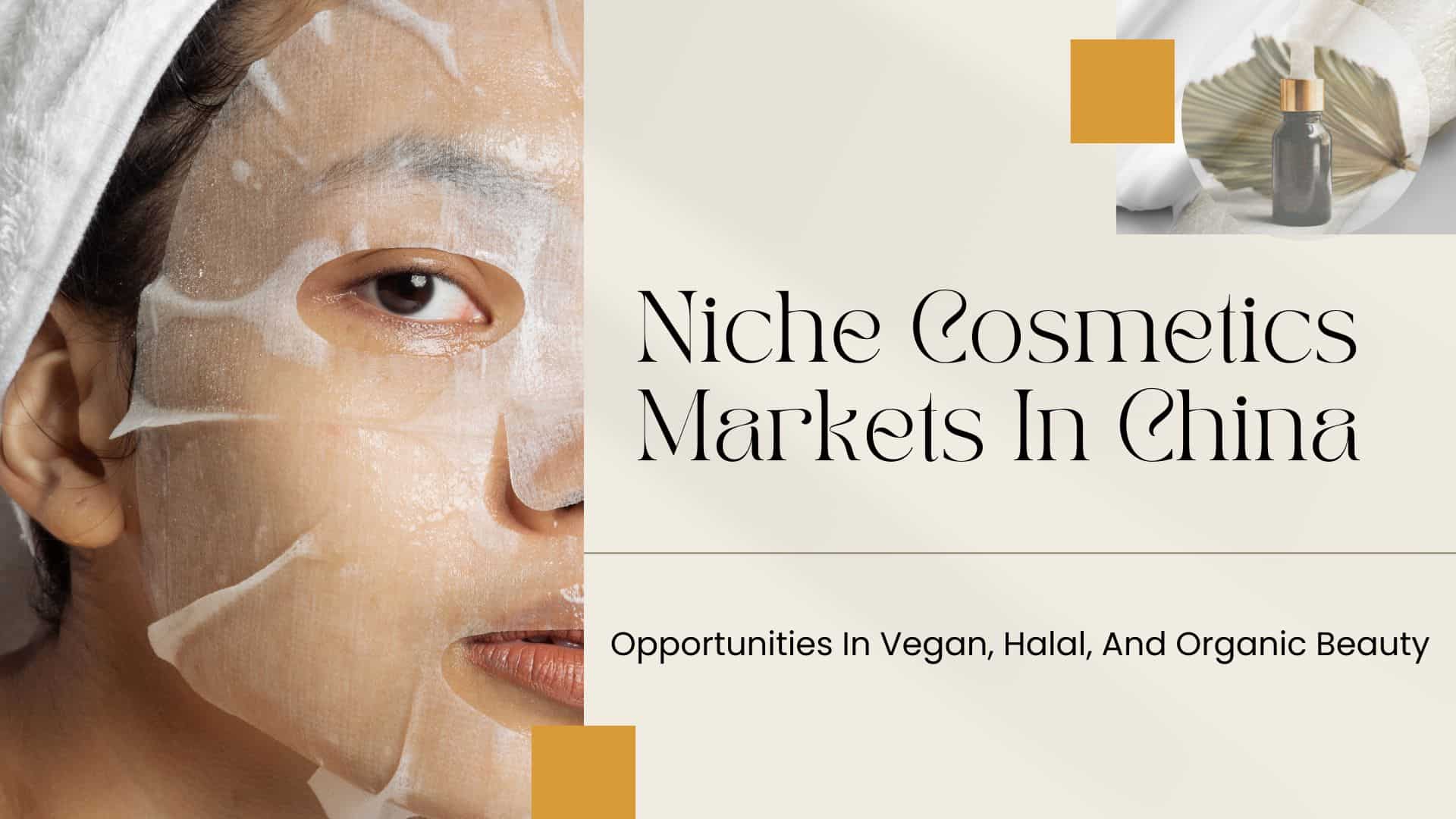
1 comment
Xin Zhuang
Hello
We are a Guangzhou Amarrie Cosmetics a Distributor of Cosmetics in China and we are searching to sell Western brands
Contact me for more information